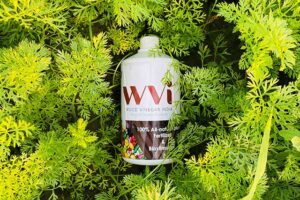
How to use Wood Vinegar: A step by step Guide for Beginners
Wood vinegar is a natural liquid fertilizer and it’s produced by the fermentation of wood

What is wood vinegar? If you don’t know yet and you are into organic gardening, then this article is here to help you out. I love the use of natural ingredients and I will gladly share with you many natural solution or technique on how to get rid of a plant disease or pest and fertilize your garden naturally!
Wood vinegar is a kind of liquid fertilizer and pesticide, which is produced through the natural fermentation of wood chips. Wood vinegar has been widely used for various agricultural uses like improving crop yield, enhancing plant’s resistance to disease, regulating soil pH and promoting plant growth.
Wood vinegar has been used for hundreds of years as a fertilizer and pesticide. It contains acetic acid which kills many bugs and acts as a natural antibiotic. It also contains valuable minerals like calcium, magnesium, phosphorous, potassium, sodium, iron and manganese. It also provides nitrogen which helps plants grow strong sturdy stems and roots.

Organic gardening enthusiasts have long been aware of wood vinegar’s usefulness. But now it is becoming more popular with conventional gardeners who are looking for an inexpensive, effective solution to garden pests. Wood vinegar is also easier on the environment than traditional chemical pesticides. It doesn’t kill indiscriminately as some chemicals do, and it breaks down more quickly into harmless compounds. And since it’s made from 100% natural materials, you don’t have to worry about toxicity issues or runoff that can harm the environment.
Wood vinegar can be applied directly to plants, or mixed with water as you would use any other spray bottle or pump-up sprayer to apply it. Wood vinegar has many purposes, including:
1) A spray for use on plants to help prevent fungus.
2) To be used as a foliar fertilizer for garden crops that need phosphorus or nitrogen.
3) As a “homebrew” pesticide, which can be especially useful for organic gardeners wanting to avoid chemical pesticides and herbicides
4) As a plant tonic, which will help plants fight off disease
So use wood vinegar in your garden as an organic pesticide and fertilizer. On one side, you have an effective organic pesticide and on the other hand, you have an organic fertilizer. Put them both together, and you have a natural way of killing pests in your crops, protecting vegetables from diseases, and making healthier vegetables for you and your family.

Wood vinegar is a natural liquid fertilizer and it’s produced by the fermentation of wood

What is wood vinegar? If you don’t know yet and you are into organic gardening,